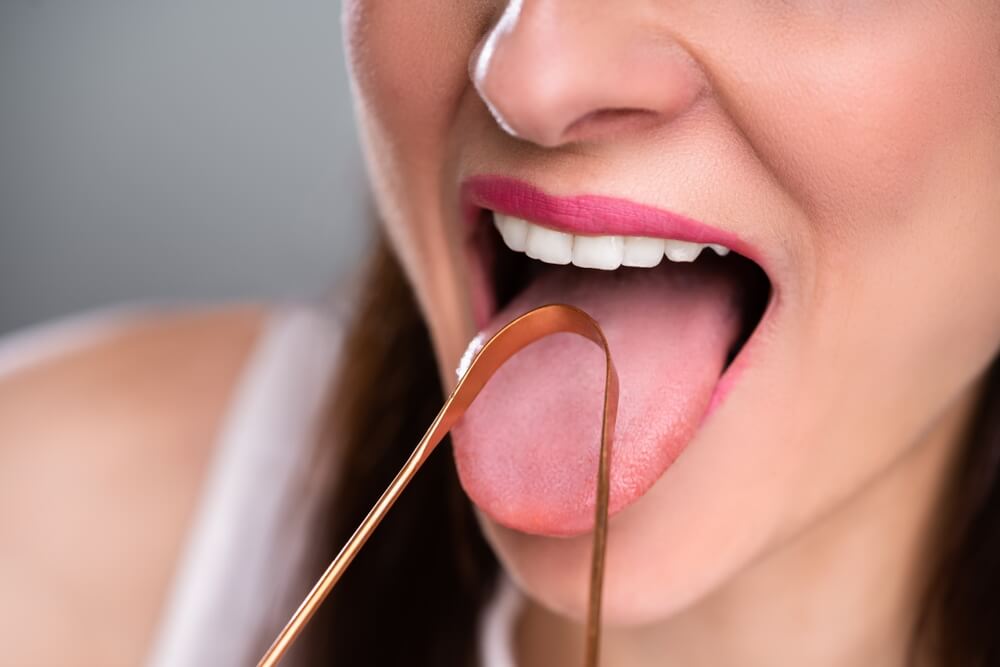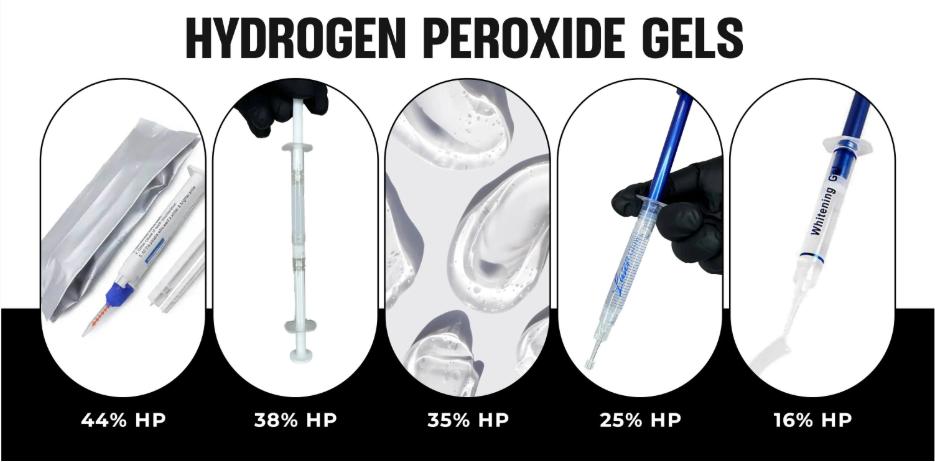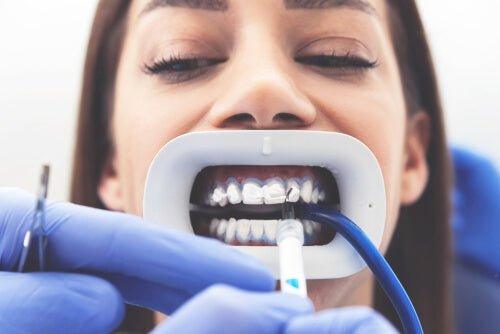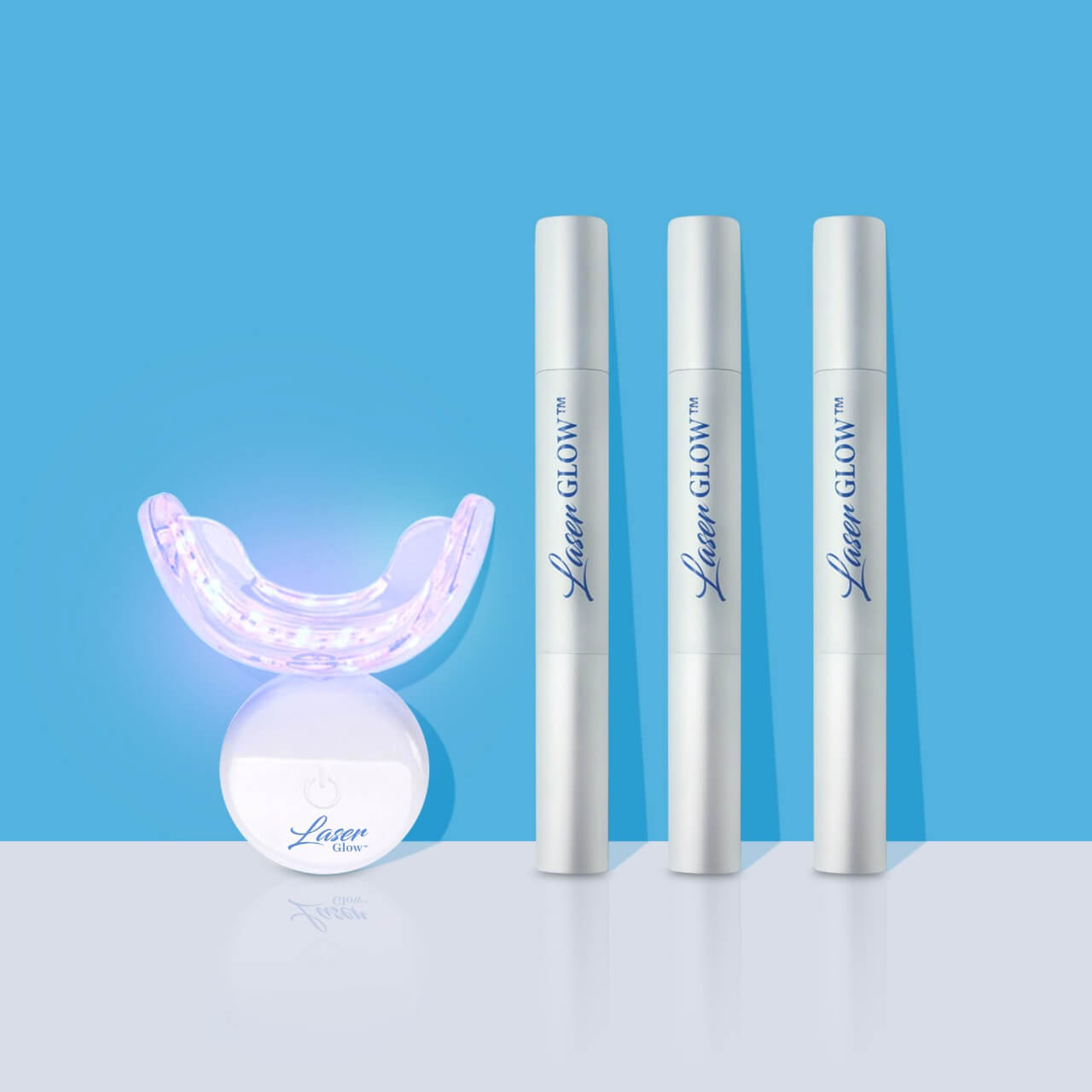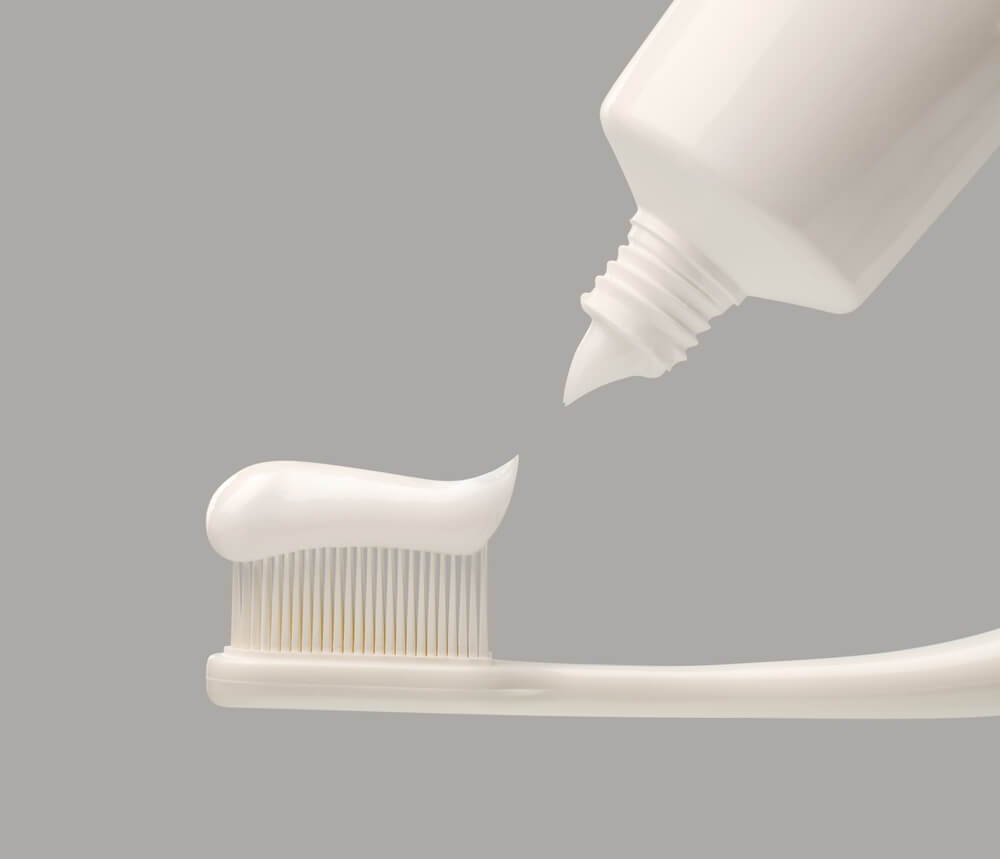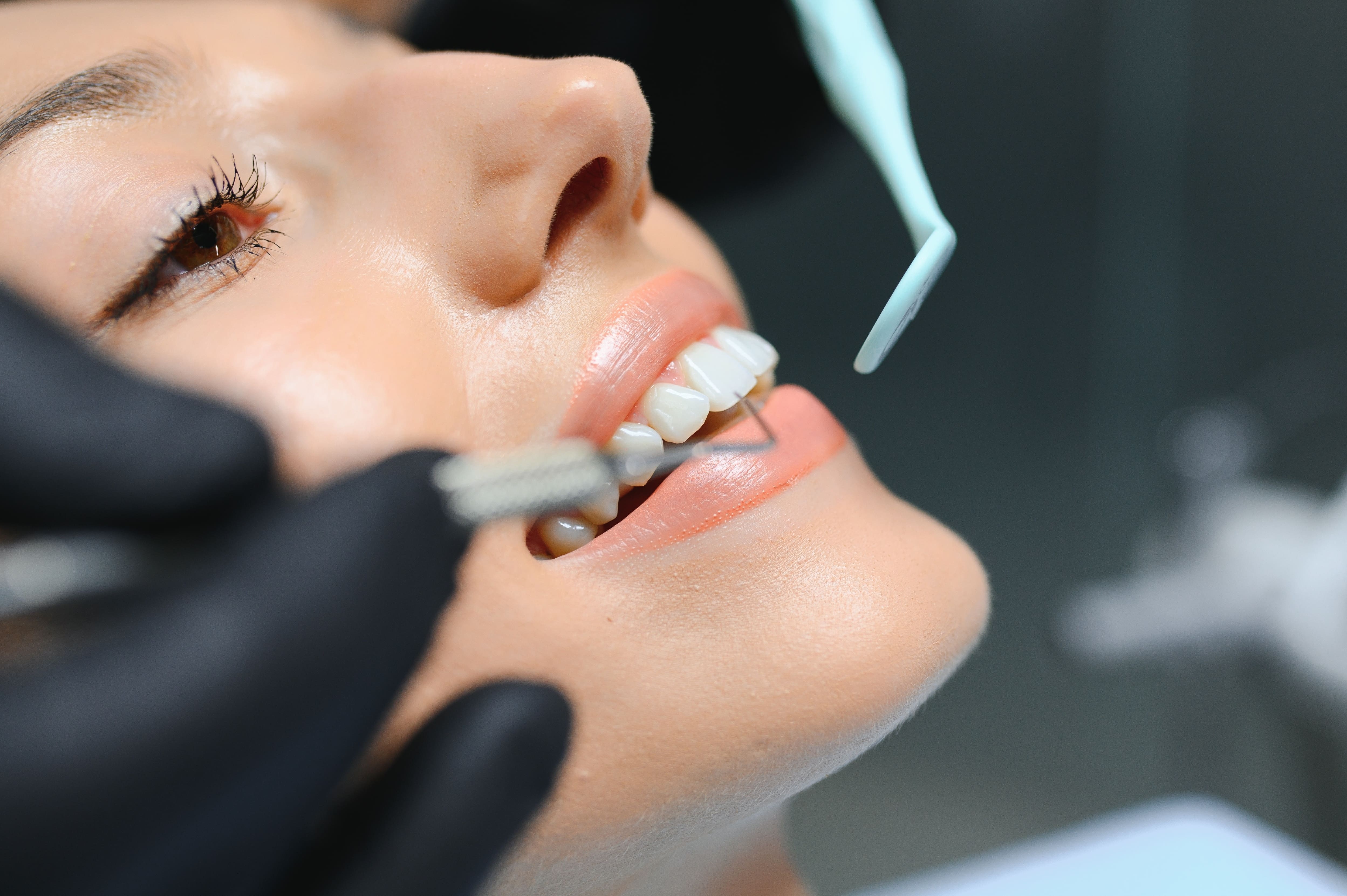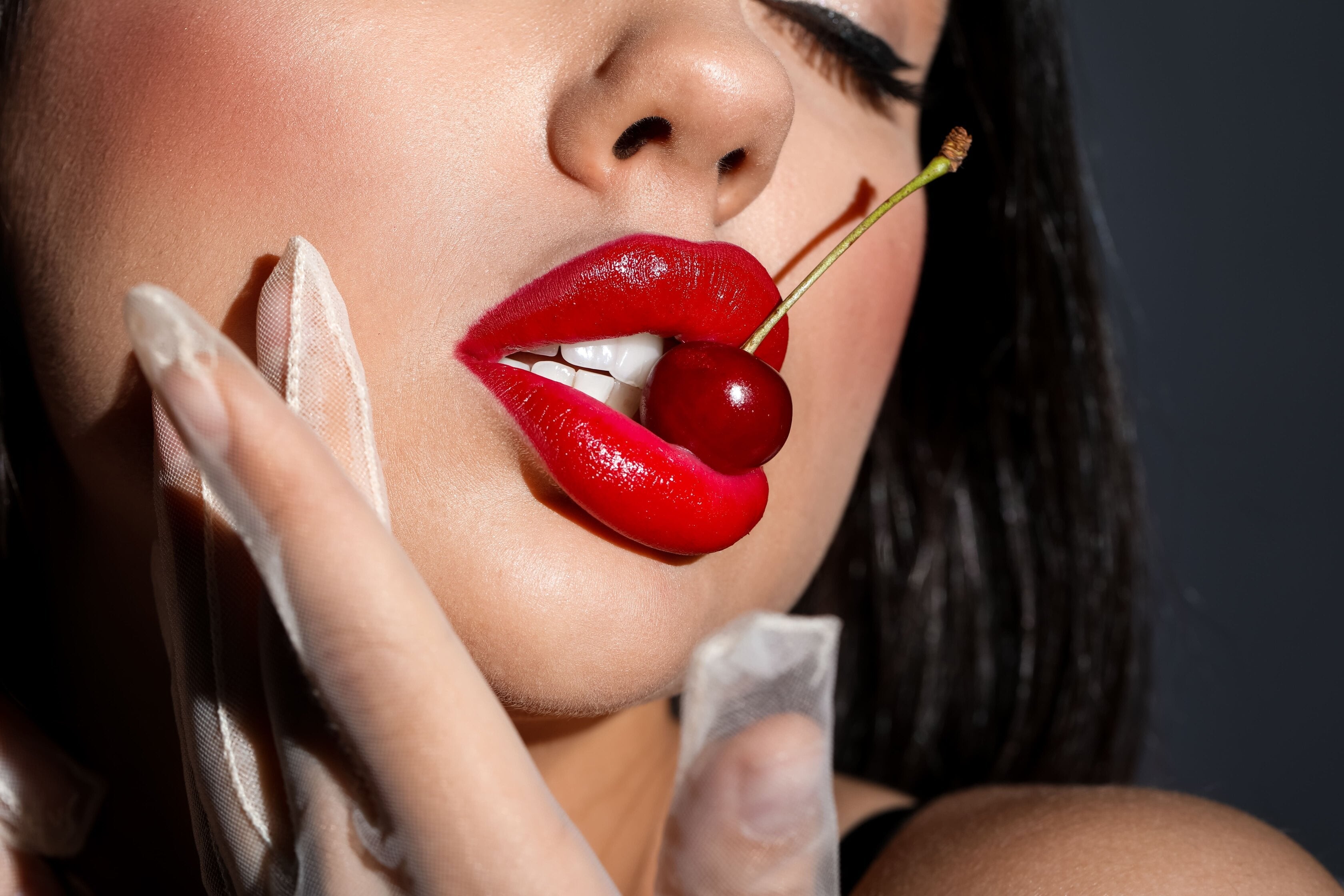Quick Answer: To get rid of bad breath permanently, you need to identify and treat the underlying cause of your halitosis. In most cases, this means practicing excellent oral hygiene (brushing twice daily, flossing once daily, and cleaning your tongue) and using an alcohol-free antibacterial mouthwash. Address any dental issues like gum disease or cavities, stay hydrated to prevent dry mouth, and avoid habits or foods that cause odor. By treating the root cause – whether it’s oral bacteria, dry mouth, or another health issue – you can permanently eliminate chronic bad breath (not just cover it up with mints or gum). Consistency is key: maintain these healthy habits and your breath will stay fresh for good.
Why Does My Breath Still Smell After Brushing?
It can be frustrating to brush your teeth and still notice bad breath. Why does your breath still stink even after brushing? The truth is, brushing alone might not be addressing all the sources of odor. Here are some common reasons your breath may still smell after you’ve brushed:
- Bacteria Hiding Elsewhere: Brushing your teeth cleans only about 25% of your mouth’s surfaces. Odor-causing bacteria can hide in places your toothbrush can’t reach – such as between teeth, on the tongue, or in gum pockets caused by gum disease. If you have untreated cavities or periodontal disease, bacteria thrive in those areas and produce foul odors that persist despite brushing. Similarly, bacteria on the back of your tongue (which has a rough surface) are a major source of bad breath, accounting for up to 80–90% of cases of mouth-related halitosis. If you’re not brushing your tongue or flossing, you’re leaving those bacteria behind.
- Dry Mouth (Xerostomia): Saliva is nature’s mouthwash – it washes away food particles and keeps bacteria in check. If your mouth is too dry, bacteria can build up and release smelly sulfur compounds. Brushing doesn’t fix dryness. Common culprits for dry mouth include mouth-breathing (especially at night), certain medications, alcohol or tobacco use, and caffeine. That’s why “morning breath” is often bad – saliva production slows down at night, especially if you sleep with your mouth open. If you brush but then your mouth becomes dry, odor can return quickly.
- Odor-Producing Foods: Some strong-smelling foods can cause lingering bad breath even after brushing. For example, garlic and onions contain oils that enter your bloodstream and lungs, causing a garlic odor to emanate from your breath for up to 24 hours (toothbrushing can’t scrub your bloodstream!). In one study, eating raw apple, raw lettuce, or mint leaves helped deodorize garlic breath faster. So if you had garlic shrimp for dinner, brushing might not fully conquer the smell until the compounds exit your body.
- Sinus or Throat Infections: Postnasal drip from sinus infections, colds, or allergies can make your breath smell bad. Mucus from your nose can drip down your throat and breed bacteria, leading to odor. If you have chronic sinus issues or tonsillitis (including tonsil stones), you might notice a bad breath that tooth brushing doesn’t touch, since the source is your nasal passages or tonsils rather than your teeth.
- GERD or Stomach Issues: If you suffer from acid reflux (GERD) or other digestive problems, stomach acids and gases can contribute to halitosis. Chronic reflux can cause a sour, unpleasant odor in your mouth, and brushing your teeth won’t stop acid or partially digested food from coming back up. In such cases, treating the reflux is necessary to improve breath.
- Smoking and Tobacco: Tobacco products leave chemicals that stick to your mouth tissues and also dry out your mouth. The result is a lingering “smoker’s breath.” Even if you brush, the smoke particles and dry environment can keep your breath smelly. Smoking also increases the risk of gum disease, which compounds the problem.
Bottom line: If your breath still smells after brushing, it means something is being missed in your oral care routine or there is an underlying issue. You might be neglecting your tongue or flossing, dealing with dry mouth, or facing non-oral causes like sinus problems or diet. The key is to identify these factors and address them (we’ll cover how to do that in the sections below). Brushing your teeth is important, but fresh breath permanently requires a comprehensive approach beyond just the toothbrush.
Can Bad Breath Be Cured Permanently?
Yes. In most cases, bad breath (halitosis) can be cured permanently – or at least effectively managed long-term – by treating its root cause. Think of bad breath as a symptom (often of oral bacteria buildup, but sometimes of other issues). If you eliminate the cause, you eliminate the symptom for good.
- If the cause is poor oral hygiene or bacterial buildup, then improving your daily oral care will cure the bad breath permanently. Many people find that simply adopting consistent brushing, flossing, and tongue cleaning makes chronic bad breath disappear within days to weeks, as the bacterial populations fall to healthy levels.
- If the cause is gum disease, cavities, or infection, then professional dental treatment (deep cleaning, filling cavities, treating infections) will remove those odor sources. Once treated, maintaining good oral hygiene will prevent recurrence of the smell.
- If the cause is dry mouth, addressing it can cure your halitosis. For example, if medications cause dry mouth, talk to your doctor about alternatives. Drink plenty of water and use products designed for dry mouth. An alcohol-free, hydrating mouthwash can be especially helpful here – for instance, a mouthwash with hyaluronic acid provides long-lasting moisture and creates an environment where odor-causing bacteria struggle to thrive.
- If the cause is related to diets or habits (e.g. high-sugar diet, smoking, frequent garlic/onion consumption), making lifestyle changes will permanently improve your breath. Quitting smoking or reducing intake of odor-heavy foods will remove those persistent odors.
- In cases where bad breath is due to a medical condition (sinus infection, GERD, diabetes, etc.), curing or managing that condition will in turn cure the bad breath. For example, if chronic sinusitis was causing your halitosis, getting proper treatment for it (antibiotics or sinus irrigation) can clear up the smell.
It’s important to note that “permanently” doesn’t mean you can fix it once and then ignore oral health afterward. Halitosis can recur if habits slip or new issues arise. The good news is that most people can eliminate chronic bad breath by simple measures like improving oral hygiene. To keep it gone permanently, you’ll need to stick with the healthy habits that cured it. Think of it like staying in shape – you have to maintain the routine.
Also, be aware that using gum or mints only masks the problem temporarily – they don’t cure bad breath. To truly cure it, you must address the source of the odor. In the next section, we’ll detail exactly how to do that with a step-by-step approach and product recommendations.
How Can I Permanently Get Rid of Bad Breath? (Top Strategies)
If you’re ready to banish bad breath for good, follow these science-backed strategies. These tips focus on eliminating the causes of bad breath and establishing a routine that keeps your mouth truly clean and healthy. Combine as many of these tactics as needed – a comprehensive approach will give the best results. Let’s get into the permanent bad breath solutions:
1. Step Up Your Oral Hygiene Game (Brush, Floss, and Scrape): The number one cause of chronic bad breath is poor oral hygiene. Brushing alone is not enough – you need to brush thoroughly twice a day, floss daily, and clean your tongue to remove bacteria and food debris on all fronts. Here’s what an ideal routine looks like:
-
Brush Twice Daily & Use the Right Toothpaste: Brush every morning and every night for at least 2 minutes each time. Use a fluoride toothpaste; even better, use a toothpaste with antibacterial ingredients, which has been shown to reduce bad breath. For example, LaserGlow’s Day & Night Toothpaste system is designed to optimize your brushing: the Day Toothpaste fights stains and tackles bad breath (so you start your day with fresh breath), and the Night Toothpaste works to repair enamel and keep your mouth clean overnight. This round-the-clock approach ensures that odor-causing bacteria are kept in check 24/7. Whichever toothpaste you choose, don’t rush the brushing – cover all surfaces of your teeth and along the gumline.
-
Floss Every Day: Flossing removes the trapped food and plaque between teeth that brushing misses. If you skip flossing, you’re leaving a buffet for bacteria in your mouth. Proper flossing once a day can dramatically reduce bad breath by getting rid of those hidden odor sources. Use regular floss, floss picks, or a water flosser – whatever makes it easiest for you to be consistent. The key is to get between all your teeth daily.
-
Clean Your Tongue: As noted earlier, the tongue is a major source of halitosis. Bacteria on the back of your tongue produce smelly sulfur compounds; you might even notice a white or yellowish coating back there. Make tongue cleaning part of your routine: after brushing your teeth, brush your tongue from back to front a few times (or use a dedicated tongue scraper if you have one). This dislodges the bacterial film and food debris. Studies show tongue cleaning can significantly reduce odor. Many modern toothbrushes have a tongue cleaner on the back of the head – put it to use! By brushing your tongue (gently), you’ll remove one of the biggest contributors to bad breath.
2. Use an Effective Mouthwash (Alcohol-Free is Best): Mouthwash can reach areas of the mouth that brushing might miss, killing additional bacteria and rinsing away debris. But be careful – not all mouthwashes are equal when it comes to curing bad breath permanently. You want a mouthwash that kills germs but doesn’t dry out your mouth. Alcohol-based mouthwashes can make dry mouth worse by stripping away moisture, which might freshen breath for an hour but then cause more odor later. Instead, choose an alcohol-free antibacterial mouthwash.
For example, LaserGlow HA5 Hydrating Mouthwash is specifically formulated to freshen breath without drying your mouth. It uses a hyaluronic acid infused formula to actually hydrate and soothe your oral tissues while it kills bacteria. This helps “say goodbye to dry mouth and hello to a refreshing burst of confidence". The hyaluronic acid acts as a “moisture magnet,” keeping your mouth hydrated for hours and creating an environment where odor-causing bacteria struggle to thrive. Plus, it’s gentle (no burning sensation) and contains natural mint for a clean, cool feeling. Using a rinse like this after brushing and flossing, twice a day can greatly enhance your breath by reaching crevices and killing remaining germs. Swish for a good 30 seconds to let it work its magic. Remember: the goal is to kill the bacteria and neutralize odors, not just mask them with strong flavor.
3. Stay Hydrated and Prevent Dry Mouth: We can’t emphasize enough how important a moist mouth is for fresh breath. A dry mouth is a playground for bacteria – less saliva means food particles and cells don’t get washed away, and bacteria proliferate, creating stink. To combat this:
- Drink Water Frequently: Sip water throughout the day, especially after eating. This simple habit helps wash away food bits and keeps your mouth from getting too dry. If you feel your mouth getting sticky or pasty, that’s a sign to drink up. As a bonus, drinking water after meals can rinse away residues that cause odor and even help prevent tooth decay.
- Sugar-Free Gum or Mints (with Xylitol): Chewing sugarless gum (especially those sweetened with xylitol) or sucking on a sugar-free lozenge can stimulate saliva flow. More saliva = more natural cleansing and fresher breath. Xylitol also has the benefit of inhibiting bacteria growth. Just be sure it’s sugar-free – regular sugary mints can feed bacteria and make breath worse long-term.
- Avoid Mouth-Drying Substances: Cut back on caffeine, alcohol, and tobacco, as these all dry out your mouth. If you are in a situation where you consume these (say a morning coffee or glass of wine), be mindful to drink water and maybe chew gum after to counteract the dryness. Similarly, some medications cause dry mouth – if so, ask your doctor or dentist for advice (they might recommend a saliva substitute rinse or an adjustment to your meds).
- Use a Humidifier at Night if Needed: If you notice you wake up with a very dry mouth (especially if you snore or mouth-breathe), using a bedside humidifier can keep the air moist and help with morning breath. Also, try to breathe through your nose, not mouth, when sleeping.
By keeping your mouth moist, you maintain an environment in which the bad bacteria have a hard time flourishing. Saliva is your ally in the fight against halitosis – treat dry mouth seriously to achieve a permanent cure.
4. Watch What You Eat (and Rinse After Meals): Dietary choices can impact your breath more than you might think. To get rid of bad breath permanently, consider these diet-related tips:
- Limit Odor-Causing Foods: We all know garlic and onions cause bad breath, but also foods like spicy dishes, certain spices, cabbage, some cheeses, and coffee can leave a lingering odor. You don’t have to avoid them entirely, but moderation helps. When you do indulge, plan some extra oral care afterwards (like a good rinse, chewing mint leaves, or an extra brushing if appropriate).
- Eat a Balanced, Low-Sugar Diet: A diet high in sugar and processed foods can promote gum disease and tooth decay (which cause bad smells). Sticky sugary foods feed bacteria. Focus on crunchy fresh fruits and veggies which naturally clean your teeth and promote saliva flow. Apples, celery, carrots – these are natural toothbrushes that can scrub away plaque and freshen breath. Plus, a healthy diet supports gum health, which is crucial because gum disease is a common cause of chronic bad breath.
- Herbs and Natural Breath Aids: Certain herbs have breath-freshening properties. Parsley, basil, mint, or cinnamon have natural oils that can mask or neutralize odors. For example, mint leaves (as noted earlier) were shown to help deodorize garlic breath. Chewing on a sprig of parsley or drinking green tea (contains polyphenols that fight bacteria) can give a small boost. These are adjuncts to, not replacements for, the core routine of brushing/flossing, but every bit helps.
- Rinse or Brush After Eating: When possible, brush your teeth or at least rinse your mouth after meals, especially if the meal contained meat, dairy, or strong flavors. If you’re at work or out and can’t brush, swishing water around or chewing sugar-free gum is a good fallback. The Mayo Clinic even suggests keeping a travel toothbrush at work to use after lunch. Removing food debris promptly means less fuel for bacteria and fewer odors.
5. Quit Smoking and Avoid Tobacco: Tobacco not only makes your breath smell like, well, tobacco, but also dries your mouth and causes gum inflammation. Long-term smokers often struggle with persistent bad breath (among numerous other oral health issues). Quitting smoking is one of the best things you can do – not just for fresh breath, but for your overall health and the health of your gums and lungs. If you use chewing tobacco or other forms, the same applies. There’s simply no way to have truly clean, pleasant breath while using tobacco regularly; the smoke and tar infiltrate the soft tissues of your mouth. The odor from tobacco can linger for days in the mouth and even in the lungs. Talk to your doctor about cessation programs if needed – your breath (and friends and family) will thank you!
6. Treat Any Dental Diseases or Infections: Sometimes, despite your best hygiene efforts, you could still have halitosis due to an underlying issue in your mouth. Two major culprits are gum disease and tooth decay. If you have chronic bad breath, visit a dentist to rule these out:
- Gum Disease (Gingivitis/Periodontitis): Gum disease causes your gums to pull away from the teeth, creating deep pockets that trap bacteria and debris. It often results in a distinctly bad odor (sometimes described as rotten or metallic). No amount of mouthwash will reach those deep pockets; only a professional dental cleaning or periodontal treatment can remove the buildup. Signs of gum disease include bleeding gums, redness, or gum recession. The good news is that treating gum disease often eliminates the associated bad breath. After treatment, keep up diligent home care and regular dental visits to prevent recurrence.
- Cavities and Infections: A rotting tooth or an abscess (infection) in the mouth can definitely cause foul breath. If you have a toothache, sensitivity, or visible cavities, get them filled or treated. Similarly, infected tonsils or tonsil stones should be addressed (tonsil stones can be removed or, in recurrent cases, tonsils can be treated by an ENT specialist). Any infection in the mouth, nose, or throat can spawn bad smells, so resolving those is key to a permanent solution.
- Dental Appliances: If you wear dentures, retainers, or mouthguards, clean them daily. These can harbor bacteria and fungus if not cleaned, leading to bad breath. Brush your dentures and soak them as directed; clean retainers or guards with appropriate solutions. If you don’t, you’ll reintroduce odor each time you put them in.
Think of your dentist as a partner in curing your bad breath. They can do a thorough exam and pinpoint any issues that need fixing. Many people are amazed how much fresher their breath is after getting a deep cleaning or a cavity filled – it’s like removing a dead plant from a room, the air suddenly smells cleaner!
7. Check for Underlying Health Problems: If you’ve done all of the above – impeccable oral hygiene, diet changes, no tobacco, dental checkup – and you still have stubborn bad breath, it might be time to look beyond the mouth. Certain health conditions can cause halitosis:
- Chronic Sinusitis or Postnasal Drip: As mentioned, sinus issues can cause breath issues. Treating the sinus problem (with medication or nasal irrigation) will help. An ENT doctor can help if you have persistent nasal congestion or drainage.
- Chronic Tonsillitis or Tonsil Stones: Some people have crevices in their tonsils that collect debris and form tonsil stones (those can smell pretty awful). Gargling with salt water, using a water flosser gently on the tonsils, or in some cases minor surgery (tonsil removal) are solutions. A medical professional can advise.
- GERD (acid reflux): If acid reflux is causing bad breath, focus on treating the GERD. Diet changes (avoiding acidic foods, not eating late at night), antacids or prescribed medications, and elevating your head while sleeping can reduce reflux. As your reflux improves, your breath should too.
- Diabetes or Metabolic Conditions: Uncontrolled diabetes can cause a sweet, acetone (or fruity) breath odor (due to ketones). Liver or kidney diseases can cause foul, fishy or ammonia-like breath. These are medical issues that require a doctor’s care. If you suspect something like this (e.g. you have other symptoms like weight loss, thirst, or known liver/kidney issues), see your physician. Treating the condition will often resolve the breath issue. Note: These cases are rarer – about 10-15% of halitosis causes are from diseases outside the mouth – but they should be ruled out if nothing else works.
In summary, permanently getting rid of bad breath is absolutely achievable for the vast majority of people. It comes down to consistent, thorough oral care and addressing any specific causes that apply to you. Next, we’ll outline a handy daily routine that puts all these tips together – you can use it as a checklist to keep your breath fresh every day.
Daily Routine for Fresh Breath (Copy-Paste Checklist)
One of the best ways to ensure you maintain fresh breath permanently is to follow a structured daily oral care routine. Below is a simple daily routine you can copy, save, or even stick on your bathroom mirror. This routine integrates all the advice from above (and it’s exactly what dentists and hygienists recommend for long-term clean breath and a healthy mouth):
Morning:
- Brush (Morning Toothpaste): Brush your teeth for 2 minutes with a fluoride toothpaste. For best results, use your Daytime toothpaste (e.g., LaserGlow Day Toothpaste) which is formulated to protect against morning coffee stains and bad breath. Be sure to brush all tooth surfaces and your tongue gently.
- Floss: Before or after brushing, floss between all teeth to remove any overnight plaque buildup. This prevents “morning breath” bacteria from hanging around.
- Mouthwash: Rinse with an alcohol-free, hydrating mouthwash for 30 seconds and spit it out. This kills leftover germs and adds a fresh minty finish without drying your mouth (LaserGlow’s HA5 mouthwash is a good choice for morning use since it hydrates while freshening).
- Hydrate: Drink a glass of water to kick-start saliva flow and wash down any remaining debris.
During the Day:
- After Meals: If possible, brush your teeth or rinse your mouth with water after lunch and any snacks. Keep a travel toothbrush at work or chew sugar-free gum if brushing isn’t an option. Chewing gum (with xylitol) after lunch can help neutralize acids and keep your breath fresh.
- Water Intake: Continue sipping water throughout the day. Aim for at least 8 glasses a day – staying hydrated ensures continuous saliva production. If you feel peckish, choose a fresh fruit or veggie for a snack (like an apple or carrot) to naturally cleanse your mouth.
Evening (Bedtime):
- Brush (Night Toothpaste + Whitening): Brush your teeth thoroughly for 2 minutes before bed. This time, use your Nighttime toothpaste (like LaserGlow Night Toothpaste) – it’s optimized to repair enamel and work on whitening while you sleep. For an extra boost, you can add a bit of PAP+ Whitening Powder to your toothpaste or use it as directed (sprinkle on your damp toothbrush). This PAP+ powder is a peroxide-free whitening booster that contains nano-hydroxyapatite to strengthen your enamel while removing stains. Not only will you whiten your smile safely, but by keeping your enamel strong and clean, you reduce places for bacteria to hide (indirectly helping your breath).
- Floss: Don’t skip the floss at night if you haven’t done it in the morning. Flossing at night is great because it removes food particles from your day and prevents them from feeding bacteria overnight.
- Tongue Clean: Give your tongue a good scrape or brush to clear off any film. This prevents a bacterial breeding ground while you sleep.
- Mouthwash: Rinse with the alcohol-free mouthwash one more time. This ensures your entire mouth is disinfected and hydrated before sleep. An alcohol-free rinse at night (like the HA5 mouthwash) helps keep your mouth moist through the night and can reduce the severity of “morning breath” significantly.
- No Late-Night Snacks or Smoking: After you’ve cleaned your mouth, try not to eat or smoke before bed. Going to sleep with a squeaky clean mouth means you’ll wake up with much fresher breath.
Follow this routine daily, and you’ll create an oral environment where bad-breath bacteria can’t gain a foothold. It’s all about consistency – each day you maintain these habits, you’re preventing odor from coming back. Think of it as daily “maintenance” for a fresh breath and a confident smile!
Frequently Asked Questions (FAQ)
Q: Why does my breath still smell bad even though I brush twice a day?
A: If you’re diligently brushing but still have bad breath, something might be missing from your routine. First, make sure you are flossing and cleaning your tongue as well – brushing alone leaves behind a lot of bacteria. Also consider factors like dry mouth, diet, or gum disease. You might be dealing with hidden issues such as a cavity, tonsil stones, or reflux. Double-check that your brushing technique is thorough (2 full minutes, covering all teeth). If problems persist, see a dentist to rule out any underlying issues. Brushing is crucial, but it’s only one part of the fresh-breath equation.
Q: Can bad breath be cured permanently?
A: Yes, in most cases halitosis can be completely cured by addressing its root cause. For many, that means improving oral hygiene and treating any dental problems. For others, it could involve treating a medical issue like sinusitis or GERD. Research and expert consensus agree: once the underlying cause is resolved and good oral care maintained, chronic bad breath should disappear for good. Just remember that “permanent” doesn’t mean you can fix it once and then ignore oral health – you have to keep up the good habits that cured it.
Q: What’s the best mouthwash for bad breath?
A: The best mouthwash is one that kills germs but does NOT dry out your mouth. Look for alcohol-free, antibacterial mouthwashes. Alcohol-based rinses can make bad breath worse over time by causing dry mouth. Mouthwashes with ingredients like cetylpyridinium chloride (CPC), essential oils, or chlorine dioxide can neutralize odors effectively. For example, LaserGlow’s HA5 Hydrating Mouthwash contains hyaluronic acid for moisture and mint for freshness, and it’s alcohol-free – a combination designed to fight bacteria while keeping your mouth hydrated and comfortable. Products like these can be used daily without the burning sensation, and they help prevent halitosis from coming back by addressing dry mouth.
Q: Are there any home remedies that actually work to fix bad breath?
A: While nothing replaces good brushing, flossing, and dental care, a few home remedies can help support fresher breath:
- Baking Soda Rinse: Baking soda can neutralize odors. A small study found that rinsing with a baking soda solution can reduce bad breath effectively. Mix 2 teaspoons of baking soda in a cup of warm water and swish for 30 seconds.
- Saltwater Gargle: Gargling with warm salt water can help cleanse the throat and tonsils, where smelly bacteria or mucus might reside. This is especially useful if you have a sore throat or tonsil stones.
- Herbs and Spices: Chewing on fennel seeds or cloves can freshen breath temporarily (fennel has antibacterial properties). Drinking green tea or a strong mint tea can also provide a deodorizing effect.
-
Apple or Parsley: Eating a slice of apple or chewing fresh parsley after a smelly meal (like garlic-heavy food) can counteract odors naturally, as some compounds in these foods neutralize sulfur compounds.
These remedies are mostly temporary fixes or adjuncts. They work best in conjunction with, not instead of, a proper oral care routine.
Q: My spouse/friend has bad breath. How can I suggest these tips without offending them?
A: This is a delicate situation, but remember that bad breath is a common issue – up to 1 in 4 people globally have halitosis at some point. You might approach it with empathy and a helpful tone. For example, you could say you read about some new mouth-care products or routines (like a cool hydrating mouthwash or flavored toothpastes) and suggest trying them together. Sometimes gifting a oral care kit (with a tongue scraper, nice toothpaste, mouthwash) in a lighthearted way can open the conversation. Emphasize that everyone gets bad breath occasionally and that you’re sharing this info because it helped you or someone you know. The key is to be kind and focus on solving it together rather than pointing blame. Once they start following the above tips, they’ll likely notice the improvement and appreciate your help in hindsight!
Q: How long does it take to cure bad breath once I start a new routine?
A: You might notice improvements within a few days of consistent good oral care. If your bad breath was mainly due to plaque or tongue bacteria, a thorough cleaning and a couple of days of proper routine can make a big difference. For example, when someone starts tongue scraping and flossing regularly, their friends or family often notice fresher breath that same week. However, if the cause was something like gum disease or a sinus infection, it may take a bit longer – you’d need to complete whatever treatment (perhaps a deep dental cleaning or a course of antibiotics) and then you’ll see the full improvement. The important thing is to stick with the routine even after you notice better breath. The longer you maintain these habits, the more you solidify a bacteria-free, clean environment in your mouth. Give it a solid 2-4 weeks of diligent effort; by then, if you’re doing everything, your bad breath should be a thing of the past.


